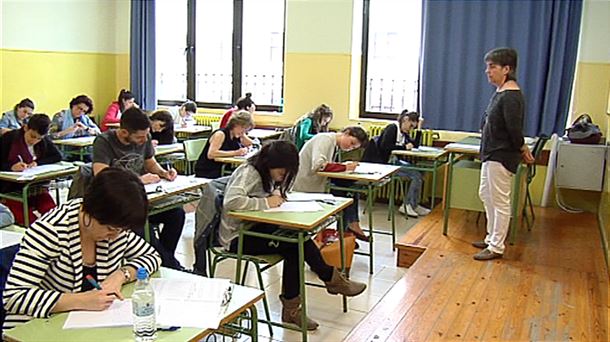Retail sales increased by 2.9% in 2022 compared to the previous year. In addition, retail employment increased by 1.7% throughout the Basque Country.
The Basque Country has lost a third of its shops in the last ten years. The closure of local shops is causing a proliferation of vacant properties, reducing the commercial attractiveness of previously thriving areas. ‘For sale’, ‘for rent’ or ‘liquidation due to closure’ signs in the shop windows accompany lowered blinds in a large number of neighborhood venues, empty due to the lack of generational lighting, the difficulty of digitization or the loss of customers, among many other factors .
however, the retail sales increased by 2.9% in 2022 compared to last year, as the 0.4% decrease in food products was offset by the 5.2% increase in other products and 7.1% in the motor fuels sector. By province, retail sales rose 3.7% in Gipuzkoa and 3.2% in Bizkaia, while they fell 0.1% in Álava.
Also the employment in the industry of retail is still very important. Compared to the year 2021, it has increased by 1.7% throughout the Basque Country, according to data released this Wednesday by the Basque Institute of Statistics (Eustat).
eitb.eus, together with the chambers of commerce of Gipuzkoa, Álava and Bizkaia, has analyzed the weaknesses and threats of the sector, as well as the strengths and opportunities that small businesses have:
Weaknesses in the sector
The old age The average number of people managing the Basque retail business makes it difficult for the company to adapt or evolve due to the technology gap or lack of interest in the face of a not-too-distant retirement. Their average age is 50 years. About 70% of Basque commercial establishments are managed by a person over 45 years old.
In many cases there is none management plan annually, with a description of the actions and objectives to be achieved. This means that in many cases the company cannot conduct professional management.
The pay raises, energy, logistics and commodities, in particular, have reduced the margin on sales of companies that have not passed on 100% of these increases in their final prices.
Many companies do not have sufficient resources to make the necessary investments renovate your facilitiesdigitize or face marketing campaigns.
In the Basque Country, only 14.5% of retail outlets sell online. 33% of companies have no management software. Only 30% accept payment with mobile phones and 15.5% with bizum, according to data from the Euskadi Trade Observatory, Enfokamer.
Lack of reaction and adaptation to the changes that take place from day to day, which in a more or less near horizon entails the loss of consumers.
Likewise, the working conditions in terms of hours, days off, salary, social recognition make little attractive to work in the sector.
hazards
The closure of shops is causing a proliferation of vacant buildings. In addition, population movements, an increasingly aging population, the fall in the birth rate and the resulting population decline changes that affect consumption and way we consume.
Basque consumers are reorganizing the composition of their shopping cart. Household expenditure on trade fell, while expenditure on leisure, catering and tourism increased.
The increase in technology of the population weighs heavily. More than 86% of the population over the age of 15 use the internet, 92% use WhatsApp and 53.2% have bought online in the last three months.
Strengths
However, small businesses try to overcome these industry threats and weaknesses by highlighting its strengths. On the one hand, there is customer trust, an essential element in shaping a business strategy. 89% of Basque consumers believe that their confidence in the trade in which they buy is high or very high. In this sense, personalized treatment, physical proximity allows them to better understand their interlocutor in order to adapt to their tastes and preferences . By putting the customer first, he can be more than just a number, as Olaia Arrieta (Chamber of Commerce of Álava) argues.
On the other hand, gentrification processes are gradually replacing local commerce with multinational chains. In this process, traditional shops are no longer as attractive to new tourists and visitors. Many bakeries, bars and supermarkets have to close to hand over the baton to new, more affluent and avant-garde entrepreneurs.
In addition, they contribute to security and urban balance by participating in the structuring of the city by creating commercial hubs.
Possibilities
We should not forget the opportunities offered by the sector: environmental sustainability and the supply of local products; the use of messaging applications, such as WhatsApp, as a means of direct communication with customers and a potential sales channel; differentiation as a key competitive advantage to survive in today’s business environment; servitization, understood as a business strategy that consists of offering services linked to a product or to the customer himself.
Responsible consumption
More and more companies are changing their protocols with the idea of both attracting these new consumers and aligning themselves with the sustainable development goals. These actions should be communicated to consumers with transparency and honesty so that they are aware of the trade’s values and commitment, including detailed information about the products and the sustainability measures implemented.
(function(d, s, id) {
var js, fjs = d.getElementsByTagName(s)[0];
if (d.getElementById(id)) return;
js = d.createElement(s); js.id = id;
js.src = “//connect.facebook.net/es_ES/sdk.js#xfbml=1&version=v2.8”;
fjs.parentNode.insertBefore(js, fjs);
}(document, ‘script’, ‘facebook-jssdk’));
Source: EITB
I’m Wayne Wickman, a professional journalist and author for Today Times Live. My specialty is covering global news and current events, offering readers a unique perspective on the world’s most pressing issues. I’m passionate about storytelling and helping people stay informed on the goings-on of our planet.



